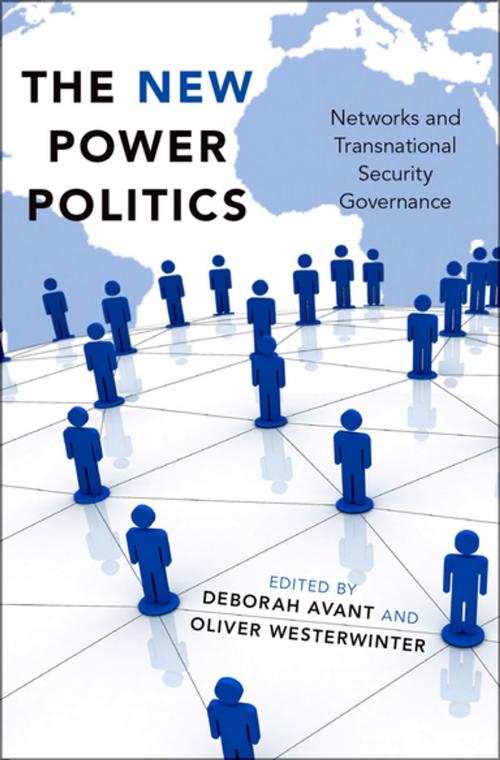The New Power Politics
Networks and Transnational Security Governance
Nonfiction, Social & Cultural Studies, Political Science, International, International Security, International Relations| Author: | ISBN: | 9780190604523 | |
| Publisher: | Oxford University Press | Publication: | June 2, 2016 |
| Imprint: | Oxford University Press | Language: | English |
| Author: | |
| ISBN: | 9780190604523 |
| Publisher: | Oxford University Press |
| Publication: | June 2, 2016 |
| Imprint: | Oxford University Press |
| Language: | English |
Traditional analyses of global security cannot explain the degree to which there is "governance" of important security issues -- from combatting piracy to curtailing nuclear proliferation to reducing the contributions of extractive industries to violence and conflict. They are even less able to explain why contemporary governance schemes involve the various actors and take the many forms they do. Juxtaposing the insights of scholars writing about new modes of governance with the logic of network theory, The New Power Politics offers a framework for understanding contemporary security governance and its variation. The framework rests on a fresh view of power and how it works in global politics. Though power is integral to governance, it is something that emerges from, and depends on, relationships. Thus, power is dynamic; it is something that governors must continually cultivate with a wide range of consequential global players, and how a governor uses power in one situation can have consequences for her future relationships, and thus, future power. Understanding this new power politics is crucial for explaining and shaping the future of global security politics. This stellar group of scholars analyzes both the networking strategies of would-be governors and their impacts on the effectiveness of governance and whether it reflects broad or narrow concerns on a wide range of contemporary governance issues.
Traditional analyses of global security cannot explain the degree to which there is "governance" of important security issues -- from combatting piracy to curtailing nuclear proliferation to reducing the contributions of extractive industries to violence and conflict. They are even less able to explain why contemporary governance schemes involve the various actors and take the many forms they do. Juxtaposing the insights of scholars writing about new modes of governance with the logic of network theory, The New Power Politics offers a framework for understanding contemporary security governance and its variation. The framework rests on a fresh view of power and how it works in global politics. Though power is integral to governance, it is something that emerges from, and depends on, relationships. Thus, power is dynamic; it is something that governors must continually cultivate with a wide range of consequential global players, and how a governor uses power in one situation can have consequences for her future relationships, and thus, future power. Understanding this new power politics is crucial for explaining and shaping the future of global security politics. This stellar group of scholars analyzes both the networking strategies of would-be governors and their impacts on the effectiveness of governance and whether it reflects broad or narrow concerns on a wide range of contemporary governance issues.















